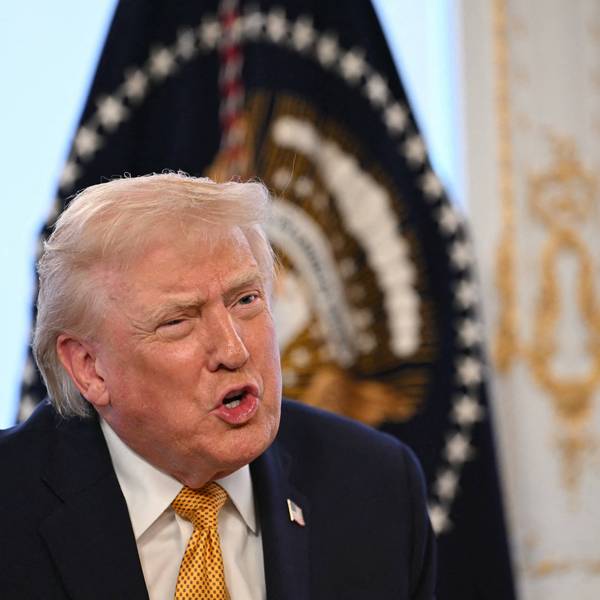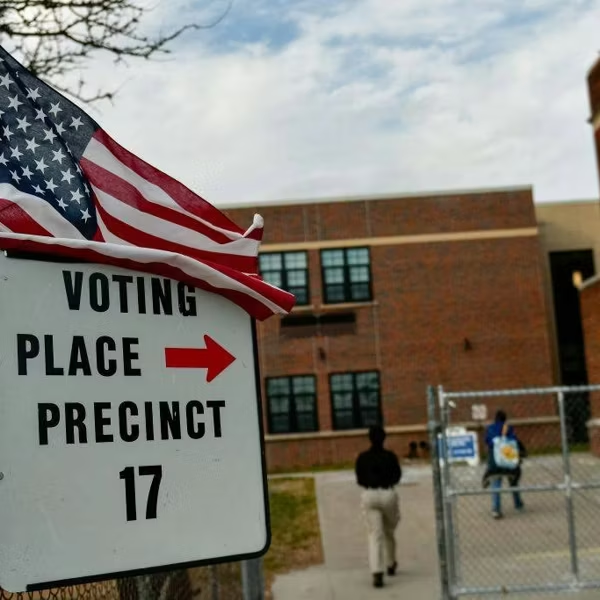Almost a year into his presidency in 1969 Richard Nixon looked like he would not finish his first term. Nothing was working, abroad or at home. Members of his national security staff were quitting in droves over Vietnam, and because they couldn't stand H.R. Haldeman, Nixon's Berlin Wall of a chief of staff. U.S. News and World Report, though a house organ of the Nixon White House at the time, was warning of "Nixon Staff in Disarray." Henry Kissinger was admitting privately-to speechwriter and future New York Times columnist William Safire-that "Vietnamization" of the conflict was not working.
As Rick Perlstein so copiously documented in Nixonland, it was leadership by crisis, and it seemed to get worse with time. Nixon's nomination of the racist Clement Haynsworth for the Supreme Court was heading for defeat. His approval rating was at its lowest since he took office (though by Trump standards, it was still stellar). Newsweek ran a cover story blaring "Nixon in Trouble!" Time magazine called it "Nixon's worst week," and the columnist David Broder was predicting that "the men and the movement that broke Lyndon B. Johnson's authority in 1968 are out to break Richard M. Nixon in 1969. The likelihood is great that they will succeed again." He'd headlined his piece "The Breaking of the President." It wasn't long before Nixon unleashed Vice President Spiro Agnew on the press to start a different kind of guerilla war and blame it all on the media, which didn't understand the president or the vast "silent majority" that loved him.
Sounds familiar? Change names and dates and you're in a foreplay of the Trump administration. Nixon went on to win reelection three years later in the fourth biggest landslide in American history, with a 23 percent margin over George McGovern and 49 of 50 states.
Liberals have been writing off Donald Trump's presidency since before it began. But the way it's going, he's heading for reelection. Maybe not on a Nixonian scale, but at least with Nixonian flair.
Trump doesn't have Nixon's intelligence or political experience, just as Nixon didn't have Trump's money or golf courses. But Trump has everything else, including his greatest ally, the same ally that helped Nixon win again: the Democratic Party. For Nixon the Democrats were broken by assassinations, party division and scandal Nixon himself manufactured for them, the way he did to demolish Edmund Muskie's threatening run against him by calling Muskie a drug addict (one of the many slurs Hunter S. Thompson channeled). For Trump, Democrats are broken by party division, a bankruptcy of ideas, disconnection from the people who used to elect Democrats, and of course Trump's own sweatshop of slanders.
RN, as Tricky Dick loved to call himself, wasn't the first to break laws, lie, draw up blacklists, abuse his power to discredit opponents and fire disloyal cabinet members. That's been true since John Adams (George Washington being too busy playing king and polishing his legend to muddy himself further). But Nixon was first to normalize those means as his everyday methods, as they now are for Trump. Nixon didn't have Fox news to push his propaganda 24/7, but he had Roger Ailes, who later created Fox News. It was never substance that sold Nixon, but an appearance of resolve, a naked pandering to base instincts that, deplorably, win elections when ideas are wanting.
So much of this unoriginal presidency takes its cues from Nixon's. He was first to exploit the until-then-untapped resentments of white privilege by way of the working class' penchant for authoritarian "law and order," that euphemism for putting putting diverse skin tones and dissenters in their place. He was first to call the press the enemy of the people, singling out journalists like Jack Anderson and Daniel Schorr with smears long before Trump's much stupider tweets about fake news: the Machiavellian in Nixon had its fascination, a depth of bleakness and depravity fit for its own circle of hell. He was an epic. Trump is a Harlequin novella.
Despite the numbers, Nixon didn't win by acclamation in 1972 but by default. Same with Trump in 2016. As with Nixon, the question isn't whether Trump can win again, but whether he can avoid self-destructing. Nixon couldn't. (The smoke-detector was invented the year he became president.) So far Trump is showing a resilience even Nixon lacked. There's been more scandals that should have ended this presidency in its first 10 months than in several presidencies combined, Nixon's included. But he's still here. He's not passed a single law that makes a difference, he has no interest in policy, no clue about governing. But he's made his own deviance normal, irresistible, invulnerable. L'Etat, c'est lui: he is the nation, to paraphrase Louis XIV's famous line about himself, though I'm not sure about Mar-a-Lago or New Jersey golf links as his Versailles.
No Democrat can overcome that just by screaming like the zombies in Invasion of the Body Snatchers (or with columns like this). All they're doing is calling it what it is, the way Hillary Clinton did with her "deplorable" diagnosis, which turned out to be about the state of her campaign. Just enough Americans proved how much they like it that way. To which Democrats have no answer. That's how grateful Trump 2020 is for Democrats. With accessories like that, he may not even need Putin's help.




